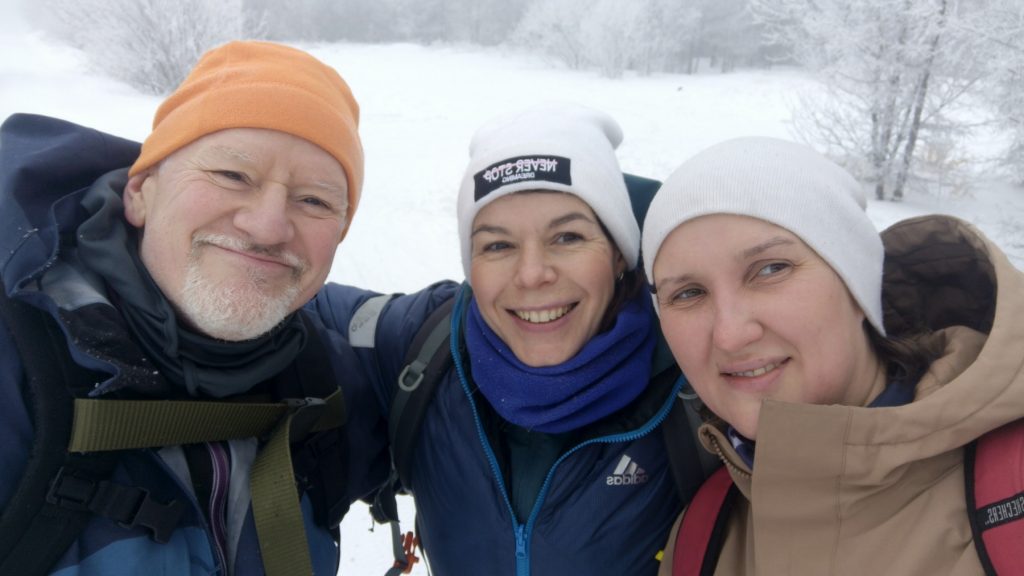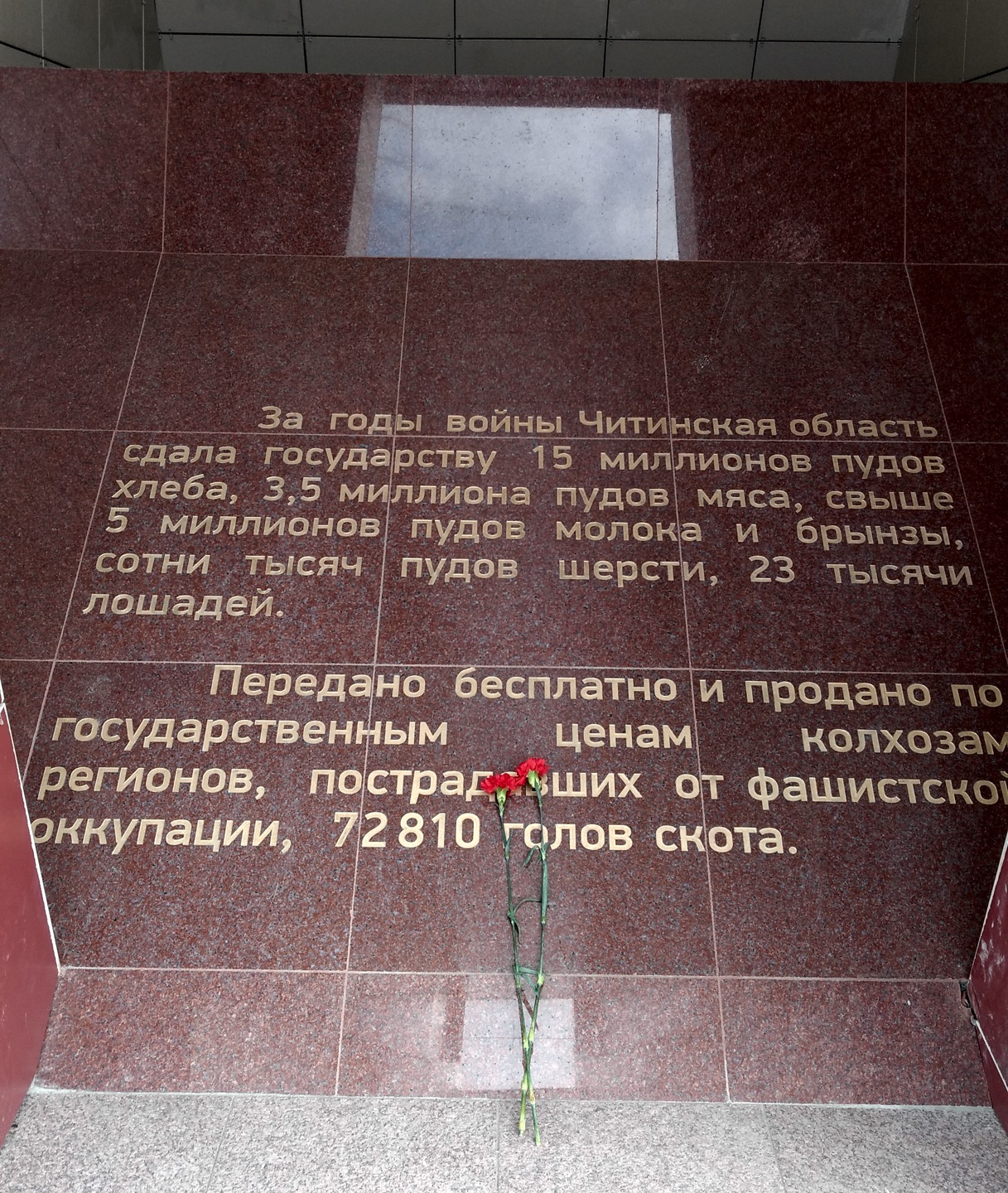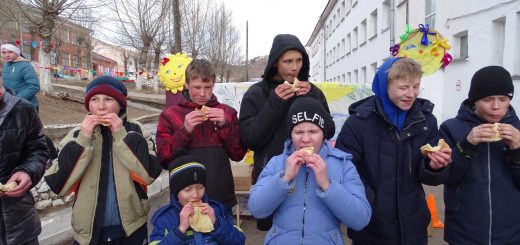Back in Chita after a 3 year absence #3
NOVEMBER 25, 2024: I haven’t written as much as planned because my laptop quit on me several days ago. It wouldn’t have quit if I hadn’t gotten it a wee bit damp along the edge… It’s a MacBook and the only place to get those fixed at the moment is in Moscow, which is 6 time zones and a zillion miles away. I’ll be home in 15 days or so and can get it fixed then. Meanwhile I’m on a borrowed laptop. Big thanks to Vitaly, who, I think, shakes his head ruefully every time he sees me. Some people are put together and just don’t get their pricey equipment a wee bit damp, and then there’s the rest of us…
Tuesday, November 19th. A recently added holiday in the last few years is a one in recognition of Higher Education Teachers. There is already a Teacher’s Day celebrating all teachers. The new one was Tuesday, November 19th, and there was an assembly for it in Chita Institute’s auditorium. Chita Institute’s Director, Elena Leonidovna Sigacheva, presented Letters of Recognition to several teachers for excellence in teaching. I was asked to play a little–my two compositions and a Bach Prelude–and then the students took over the assembly, running a fun competition of several word and knowledge games that pitted three teams of teachers against each other.
Thursday, November 21st. Elena had a tea party in her apartment for some of her school-aged students and a couple of young private students of another Chita Institute teacher, Kristina Mkrtchian (She’s Armenian). We played Krokodil (similar to Charades) and Password…in English! The young English students were very impressive. I had met Elena’s students Katya, 15 and Dasha, 14, three years ago when I was here last. And I met Kolya, 16, in 2019, I think, when he was 11. Kristina’s students, Dasha, 15, and Semyon, 12, were excellent. Semyon is very interested in history and, at his young age, has already attended two conferences in Moscow on World War II (The Great Patriotic War). His most recent paper for the conference was on Chita’s role in World War II. I perked up at that. In 2014 I learned about the transfer of the Soviet Army to Chita and surrounding areas at the request of the Americans to assist in finishing the war with Japan. On my 2015 visit to Chita I talked to a local historian about these days–he was thirteen at the time–and I have his paper that he prepared for me then. I asked Semyon if I might have a copy of his paper as well, and he said I could. I’m looking forward to that.
Friday, November 22nd. I spent a few hours with a girl, Yesenia, the 12-year-old daughter of the Chita Institute’s Director Sigacheva. She’s enrolled in the city’s English Immersion School “No. 49”. The point was, of course, to speak English and for her to converse with a native speaker, a rare opportunity here, to say the least. Well, there was as much Russian training for me as there may have been English training for her! We spent a lot of time with our smartphone translators, and even being lazy with those, ie. by showing results, rather than trying to struggle through saying them. However, I guess I don’t mind much. Some good work was done, but more good conversation was had than might have been without the machine translation help.
Yesenia is a lively personality. We began our chat in the auditorium at the Institute where I’ve been practicing on their piano. Yesenia played a couple of things she’s been learning at the piano. Then we sat on the stage and I asked how she liked school and did she like her teachers. No, she did not like her English teacher! She thought she was cruel. Why? Well, Yesenia’s previous teacher had spent six years in the US and taught from that knowledge. This teacher said that her previous one taught incorrect things. I chimed in that it is possible that both teachers were useful. American English in daily usage is relatively unfussy about grammar or syntax. There is something freeing about that: if you understand the meaning, then the details of speech are not so important. However, her “cruel” teacher probably understood good classic English, and that is a very useful thing to have. In the end, broad communication is most important, and a clear understanding of less idiomatic, more strict, English is going to serve you better. She seemed to understand what I was saying…or not… Why she’d sit there and take this lecture from me is another question. Maybe because I’m old and she was trapped into this meeting. Maybe she’s just polite. And maybe she was awash in my English speech without catching meaning–something I feel happens to me with Russian the majority of the time, a shrinking majority, I’m pleased to say.
As this conversation continued, she slid into a splits on the stage. I complimented her on that. Her sport is cheerleading and she’s been to camp for that several times. She showed me more contortions. She then asked a question seemingly out of left field: if you can practice law in the US, does that make it possible to practice law in the UK? I said I doubted it, but couldn’t say for sure, that there might not be ways to make that move. Why are you asking? She said she wants to be a lawyer so she can make a lot of money and would practice wherever the money was better. She then said, if not a lawyer, then a fashion designer. And she showed me some things she’d designed using a phone app–very frilly stuff!
Then we went to the Institute’s library and got a quick tour of the exhibits–faculty publishing, photos of amateur theatrics, the big Decembrist mural filling one wall. There Yesenia worked on my Russian phonetics, specifically the letter “ы” …which is not “ee” and is not “uh” although it sounds like both those to me. It has to do with something going on inside, a relaxing of the throat, or so I’m instructed. After 20+ years I’m still not confident about making this sound, though I was getting positive feedback this time around. And then we walked to her favorite coffee bar named–in English–”I Like Coffee”. It was her treat, or rather her Mom’s treat/credit card. I had a double espresso, a taste of home. Returning to the Institute, we met Elena, and the three of us headed to the next stop, a computer repair shop a 10 minute walk away. There I got the sad news that repairing a MacBook is only possible in Moscow. Yesenia walked me to my hotel and chirped a quick goodbye. And that was that.
Saturday, November 23rd. Elena, Zhenia and I made the Vysokogorye, “High Mountain,” walk again, this time without Sasha and in weather that was about 20 degrees (F) warmer at around 10F. It was a grey day. We hiked up into ice fog. This was not thick. It made the forest of birch, larch, aspen and bagulnik shrubs quite mysterious, like a setting for some fairy tale. At the fireplace stop, we had a snack and some tea.
Chickadee-like birds gathered in the branches overhead. Elena said that they’d come and take breadcrumbs from my hand if I held it out. I did, and they did! Amazing! Elena and Zhenia were surprised that this is not a common thing in the US. Likewise with feeding squirrels in the forest. It was remarkable to be that close to such tiny, energetic life. The feeling of their claws on my fingers was like nothing I’ve known, delicate, quick and precise.
From here to the top of the mountain, another 10 minutes, where all the branches and boughs were flocked with crystals from the fog. We came back down the mountain, not by backtracking as we did last week, but hiking a loop that came back to the main path down in the mature forest toward the bottom of the park.


That evening Zhenia invited Elena and Vitaly and me to her apartment for dinner. She lives three minutes on foot from Elena and Vitaly. Her building is from the Krushchev era. During that time there was a big effort to get everyone into modern housing in the form of big apartment blocks, and out of the old wooden houses that could not be connected up to heat and hot and cold water services that were all centralized in cities in the Soviet era, a plan that continues today as it is, I believe, more efficient, especially for cold climates (although this shared system contributes to the irony that this cold climate typically has overheated interiors! The regulation of an overheated apartment’s temperature is accomplished by opening a window a crack to the frigid air. And I knew to bring shorts with me this time when going visiting!) . The Krushchev apartments have smaller rooms than later apartment blocks. By contrast, Elena and Vitaly are in a post-Soviet building with much more space.
Zhenia served chicken and potatoes, homemade pizza, olivier salad and a wonderful garlicky tomato relish that goes on everything (according to me). For dessert we had ice cream. Legal ice cream, as we were discussing, is ice cream served by someone else and not in your own freezer where it might get scarfed down in one sitting.
We played several rounds of Krokodil and Password. Krokodil is quite similar to charades, but limited to nouns, and since Russian is a root-based language, clues could not use the same root. Yes, both games were played in Russian. Yikes. They all were VERY generous to me about that. The biggest failure of mine was the name of Baba Yaga’s hut. I was proud of myself for knowing who Baba Yaga was and knowing she had a hut. But everyone knows the name of the hut, right? Just in case, it is “Izbushka na kurikh noshka”, literally the hut on chicken legs. (And I knew about the chicken legs.)
Zhenia is not just an athlete and climber, she is an artist in paper, designing and selling elaborate greeting cards of layered cut paper. She is studying painting and showed me her classroom work in watercolor and gouache. She also paints postcards. Very nice stuff!



